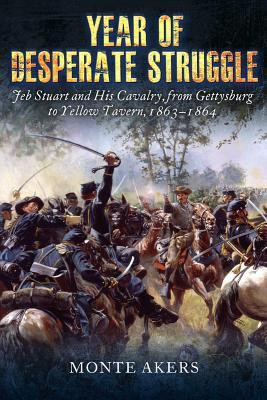Year of Desperate Struggle(English, Hardcover, unknown)
Quick Overview
Product Price Comparison
By the summer of 1863, following Chancellorsville, it was clear to everyone on both sides of the Civil War that the Army of Northern Virginia was the most formidable force Americans had ever put in the field. It could only be "tied" in battle, if against great odds, but would more usually vanquish its opponents. A huge measure of that army's success was attributable to its cavalry arm, under Major General J.E.B. Stuart, which had literally "run rings" around its enemies.But Northern arithmetic and expertise were gradually catching up. In this work, the sequel to his acclaimed Year of Glory, author Monte Akers tracks Stuart and his cavalry through the following year of the war, from Gettysburg to the Overland Campaign, concluding only when Jeb himself succumbs to a gunshot while fending off a force three times his size at the very gates of Richmond. Gettysburg put paid to the aura of unstoppable victory surrounding the Army of Northern Virginia. But when Grant and Sheridan came east they found that Lee, Stuart, Longstreet, and the rest still refused to be defeated. It was a year of grim casualties and ferocious fighting-in short, a year of"desperate struggle" with the gloves off on both sides.This work picks up where Year of Glory left off, with a minute examination of Stuart's cavalry during the controversial Gettysburg campaign, followed by the nine months of sparring during which the Army of Potomac declined to undertake further major thrusts against Virginia. But then the Union's western chieftains arrived and the war became one huge"funeral procession," as Grant and Sheridan found that their prior victories had by no means prepared them for meeting the Army of Northern Virginia.In this work Akers provides a fascinating, close-in view of the Confederacy's cavalry arm during this crucial period of the war. After Stuart's death the Army of Northern Virginia would eventually be cornered, but while he was alive it was often the Northerners who most needed to look to their security.


